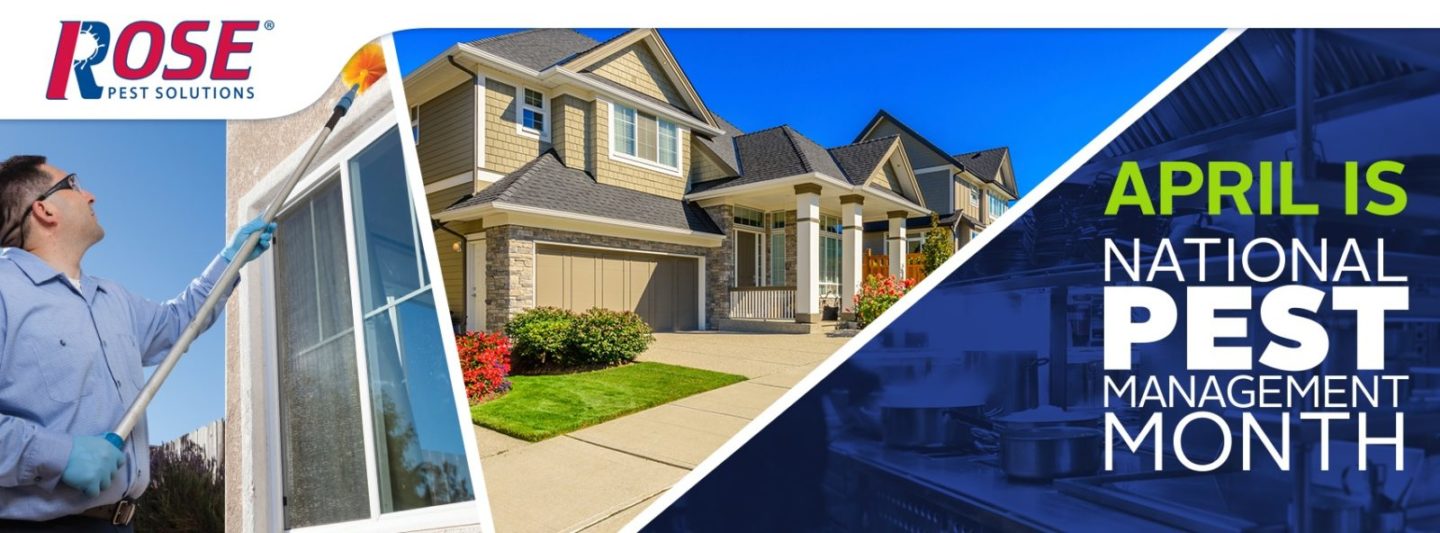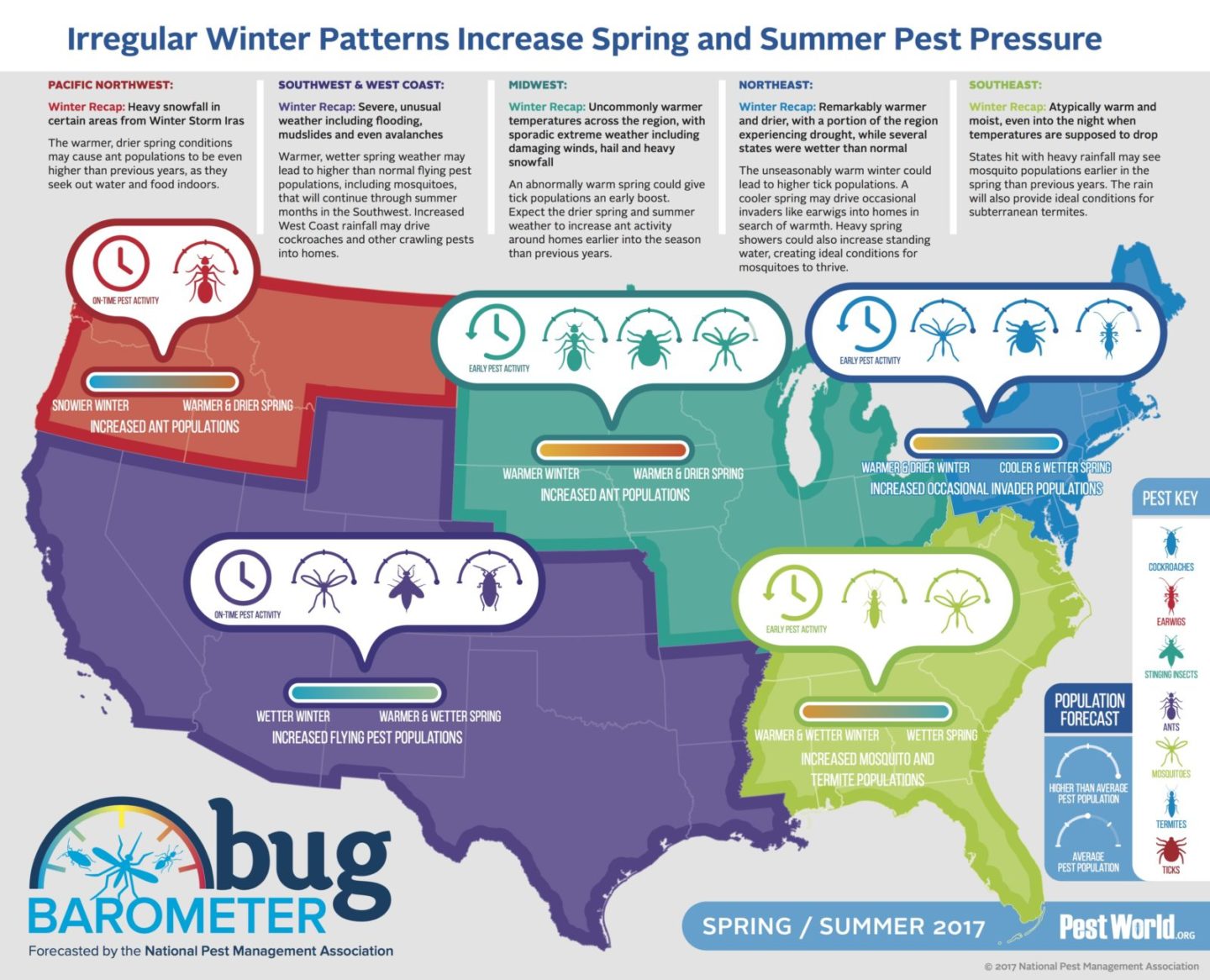
In honor of National Pest Management Month, we want to draw your attention to a number of important issues in the pest control and pest prevention industries. Most of us only deal with pests because they’re annoying and they freak us out, but here at Rose it’s just as much about protecting your health, food and property from those same pests and making a positive impact on your quality of life. Are you pest prepared for the warmer weather? The first step is education!
In light of the irregular winter patterns we experienced over the past months, there’s going to be an increase in spring and summer pest pressure all across the country. The Bug Barometer, as forecasted by the NPMA, lays out everything you’re going to have to worry about during the spring and summer months in this very helpful infographic.
We want to help all of you as much as possible, so here are some pest-proofing tips from the NPMA and all of us at Rose:
-
Eliminate sources of standing water around the house, including birdbaths and in clogged gutters to help reduce biting mosquito populations.
-
Seal any cracks on the outside of the home with a silicone-based caulk, including entry points for utilities and pipes.
-
Replace weather-stripping and repair loose mortar around the foundation and windows.
-
Keep tree branches and shrubbery well trimmed and away from the house. Overhanging branches can act as highways into the home.
-
Repair fascia and rotted roof shingles.
-
Keep mulch at least 15 inches from the foundation.
-
Keep basements, attics, and crawl spaces well ventilated and dry.
-
Store garbage in sealed containers and dispose of it regularly.
-
Avoid leaving pet food out in dishes for long periods of time.
-
Consider partnering with a pest control professional to determine the best preventative service plan to suit your home and needs.
Pest-proofing is essential–especially with the warmer weather on the horizon–but we know how unnerving all those emerging pests can be. We’re here to help. Don’t let the emerging pests contaminate food, spread disease or exacerbate allergy/ asthma symptoms at your home or office.


